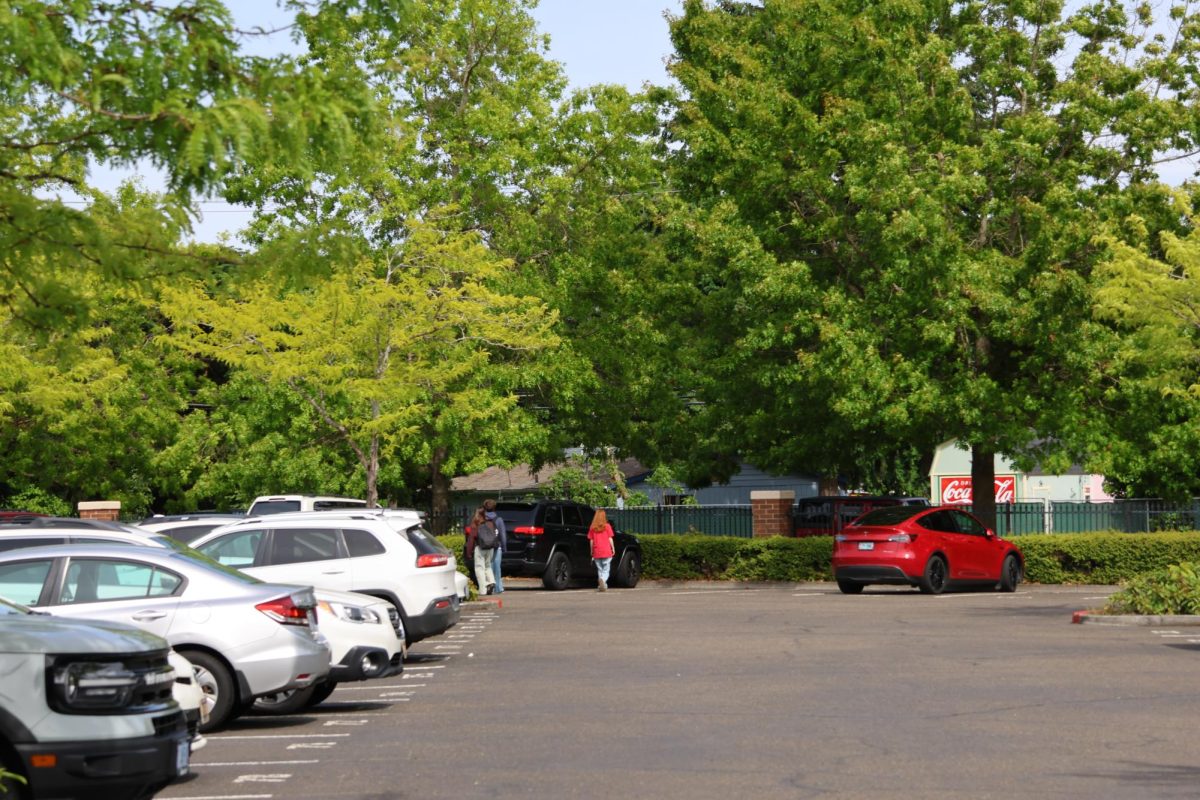After four months of winter’s short days and long nights in standard time, daylight saving time (DST) has officially begun as of March 10.
While some people are content with the switch, others wish Oregon was still in standard time, and some people don’t want the switch from standard time to daylight saving time to be observed at all.
Science teacher Mr. Ryan Kain said that “[the switch] is pretty abrupt … I get the theory, or the concept, but I don’t understand the practice.”
While both standard time and DST have their own individual pros and cons, some say the switch between the two does more harm than good. When the clock springs forward to daylight saving time, everybody loses one hour, which often translates to one hour lost of sleep. Not only does this mess up the body’s circadian rhythm and internal clock, according to research from the University of Michigan, it also poses serious health risks. The research showed that the number of heart attacks increases by an entire 24% the first Monday after the switch due to the loss of one hour of sleep.
According to Mr. Kain, “the overall energy levels were aggressively low” on the Monday after the switch.
For others, however, the loss of sleep doesn’t really bother them — it’s just a temporary inconvenience. Director of STEAM, Innovation and Design Teacher Ms. Carie Coleman said that “It’s only an hour of sleep in any given night … It’s not a big deal to me. I might be tired for a day or two, but I really don’t see a big difference for me.”
For some, it does not affect their life at all. Senior Athan Van Sickle said that he “wouldn’t have noticed if someone hadn’t mentioned it.”
A big change that comes from daylight saving time is the additional hour of sunshine added to the day. Senior Ava Goodwin said that she prefers the longer days in summer over winter’s long nights. “I hate how short the days … feel and how dark and mopey they are,” she said. “And I hate waking up in the dark, it’s so less motivating.”
According to the National Institute of Mental Health, the lack of sunshine in the winter could correlate with a lower production of serotonin, something that is also associated with depression. Seasonal Affective Disorder (SAD), better known as seasonal depression, is a diagnosable form of depression characterized by its recurrence every year around the same time.
Others don’t express the same desire for daylight saving time’s extra sunshine, however. “I like the darker days … I love when it gets really rainy and dark,” Van Sickle said.
People who prefer the dark could possibly be in for some good news. The Oregon Senate has recently been battling over Senate Bill 1548, a proposal to ditch the switch to daylight saving time every year and stay permanently on standard time. Back in 2019, a bill was passed by the Oregon Senate to do the opposite and make daylight saving time permanent, however a state switching to DST needs congressional approval — which has yet to be granted — but switching to permanent standard time does not.
Back on Feb. 20, however, the bill got stuck in a deadlocked 15-15 vote. There were concerns about the bill not including California and Washington in the switch, which meant that if it had passed, Oregon would be a whole hour behind its West Coast sibling states. People who have to cross the Columbia River to go to work would need to change their clocks every day for half the year. Following this stalemate, the bill was revised to require Washington and California to follow in Oregon’s footsteps before Oregon could make the permanent switch.
“I was happy to see when the proposed bill was like, ‘with Washington and California,’” Mr. Kain said. “My sister lives in Vancouver, and that would be wild if they were just casually an hour ahead of us, and 20 minutes north of us.”
The bill was voted on once more on March 4 with the new requirement, and passed 16-14 in favor of switching permanently to standard. Though the bill may have passed the Senate, House Speaker Dan Rayfield refused to pass the bill on to the House of Representatives for the 2024 Oregon Legislative Session, and the bill died shortly after being given renewed hope for life. In an article for the Oregonian, a spokesperson for Rayfield, Hazel Tylinski, stated that “given the shortened timeline and the queue of critical bills we’re still working through, we aren’t able to give enough time to consider the merits of the bill in the time we have left this session,” she said. The Oregon Legislative Session ended on March 7.
While Van Sickle stated that he was “indifferent” on whether or not the bill was passed, he expressed that “there’s better things to change, if we’re being honest.”
Senior Virgil Carlberg also expressed disapproval for the bill. “I don’t want them to get rid of daylight saving time,” she said. “I really enjoy having an extra hour in summer.”=
Summer was another point of skepticism for the switch to permanent standard time. As stated in an article for Oregon Capital Chronicle, the sun would set at 8 p.m. during June, and the sun would be waking people up at an early 4:30 a.m.
Goodwin expressed that shorter days would lead to less time for personal life outside of work and school. “We should all have a right to go to work, provide for ourselves, and then be able to have time and come home and still feel like … there’s a day to have our own personal lives.”














